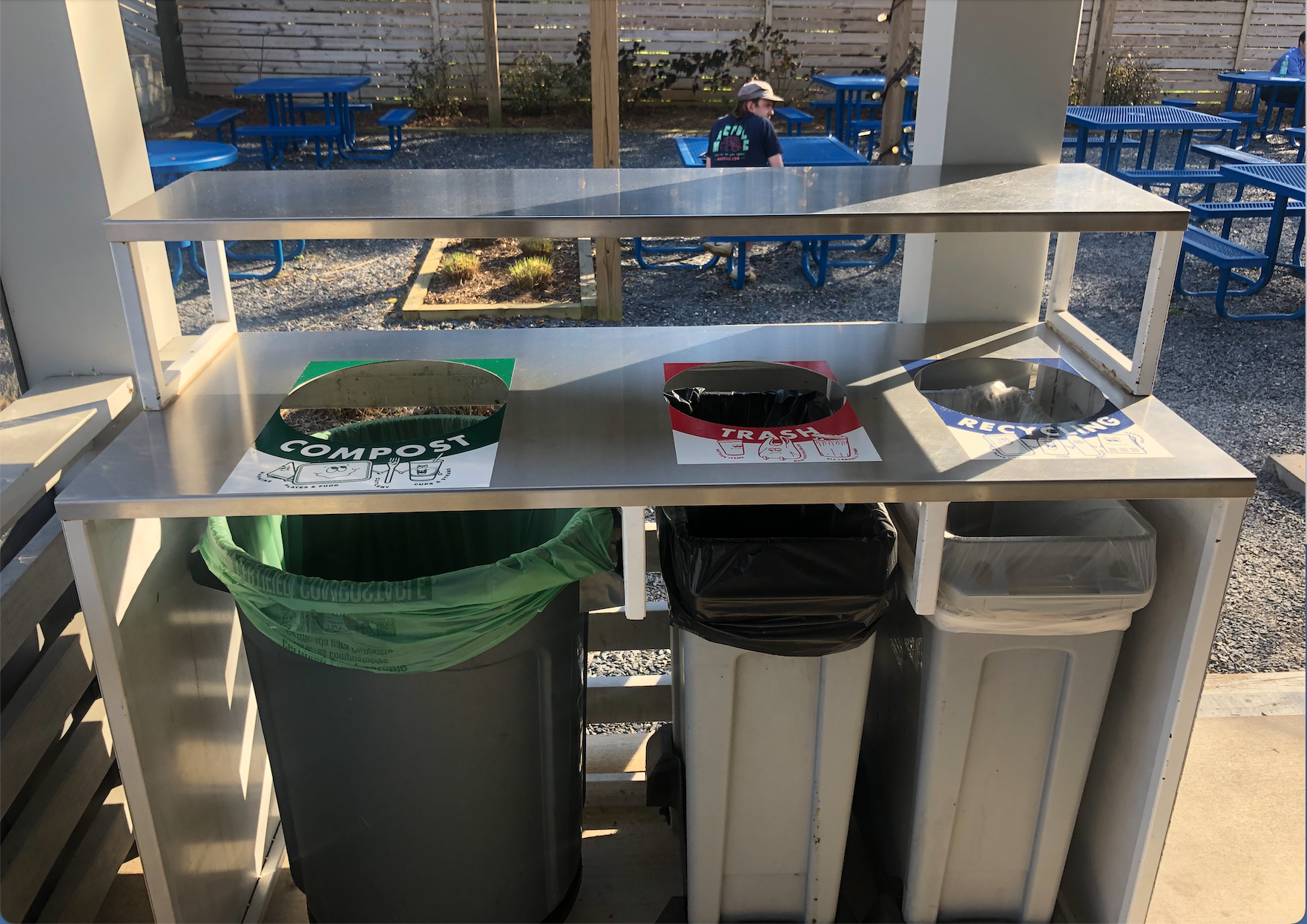The last Maepole customer stands from their table and makes their way to a compost bin on the verge of overflow from the day’s diners. After another bustling dinner service, staff began their nightly routine of scrubbing down the kitchen, breaking down seating, sanitizing equipment and taking out the compost; remnants of the restaurant’s last meal strategically placed on top of the pile to avoid an avalanche.
Maepole is one of several restaurants opened by chef and entrepreneur Peter Dale in Athens, Georgia. When planning for the restaurant began, Dale and his team ran into an obstacle. Their plot of land wouldn’t be able to accommodate the number of commercial dumpsters needed to support the flow of customers Maepole expected to serve, so Dale created his own solution.
Sustainability has long been a focus for Dale. All of his restaurants’ source produce from local farmers, which helps to support the local economy and cut down on emissions from transportation. But his best practice for restaurant sustainability comes from implementing a compost system for kitchen scraps and food containers, minimizing waste production by sending less of what trash they create to landfills.
According to a 2005 statewide study, wasted food is among the top three solid waste materials in the Northeast Georgia watersheds and landfills at around 12%. When food and organic materials end up in landfills in large amounts, they produce high levels of methane gas which is a main contributor to global warming.
“You know, it’s always been something that’s been of interest, and also of concern. Whether, you know, it’s sort of traditional food waste, or even just what we do with packaging,” said Dale, taking steps to curb restaurants’ impacts on the environment is a defining characteristic for his businesses.
Maepole took his low-waste mission to a new level by making it the focus of their brand and involving their customers in the composting process with labeled bins and material that’s compostable from the food to its packaging.
Restaurants like Dale’s were some of the first in Athens to regularly and effectively begin composting. He worked closely with Joe Dunlop, waste reduction administrator for Athens Solid Waste Department, on the Maepole project. Now, according to Dunlop, the city has been able to set up a commercial compost collection route that serves 30 customers, including local Chick-fil-A’s. Dunlop got the go-ahead to make this route full-time last week.
Grace Barnett, a senior at the University of Georgia and Maepole customer, says eating at the restaurant has really started to change her thinking on composting and what she throws away.
They make it so easy with signs specifying what to throw away in each trash can. One for plastics, the types of cups and lids that can be included, and their composting. It’s really cool how much you can actually compost,” she said.
Dining-in at Maepole offers the opportunity for the community to get involved in their sustainability efforts. Customers like Barnett, who hadn’t been exposed to the composting process before, now have the ability to participate in the cities composting program with minimal effort, and clear directions on what can and can’t be composted.
If composting isn’t on the radar of local restaurants, “it’s about to be,” says Dunlop. “I just got the green light to promote the program, so I’m going to be going down there and talking to The Last Resort and some of those places to see if they want in.”
The bottom line is that Dunlop believes composting is making a notable difference in the city’s solid waste and is only going to expand from here.
“It takes a few smaller organizations or individuals to kind of get an idea rolling and, you know, it takes a while to catch on, but I think that this hits so many different areas,” said Dale.
Antonia Bottinelli is a student in the Grady College of Journalism and Mass Communication at the University of Georgia.









Show Comments (1)